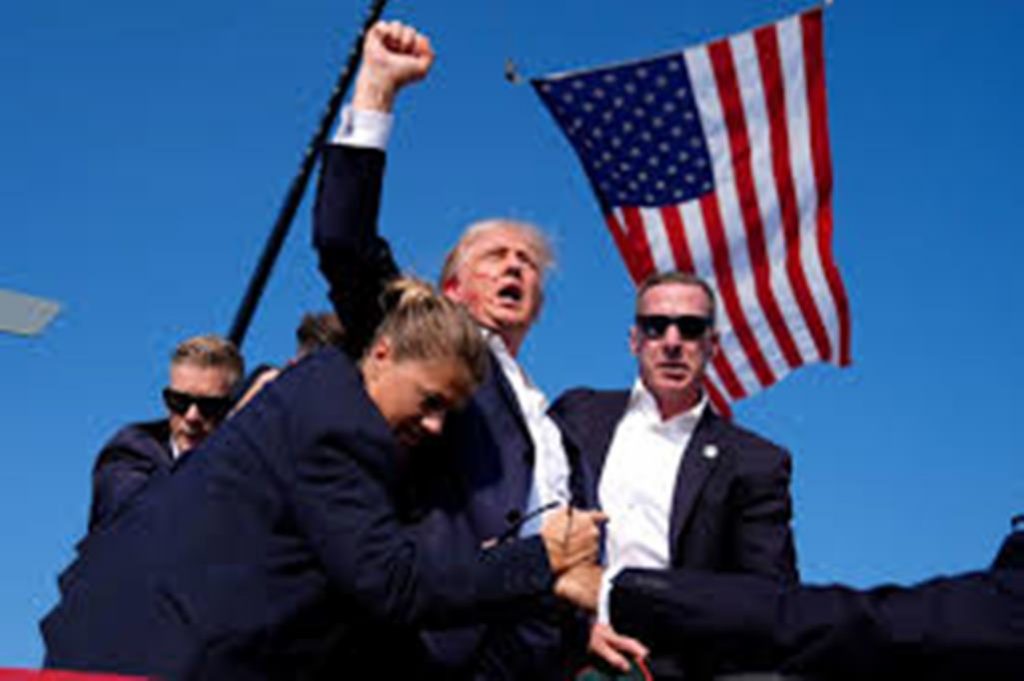
This past weekend, the U.S. experienced a disturbing assassination attempt targeting former President Donald Trump. This tragic event, like similar incidents in the past, highlights a serious issue: the need for individuals to participate in political processes and attend events without fear of violence. It serves as a sobering reminder of deeper systemic problems within our political and societal frameworks.
The Personal Impact of Political Violence
The act of trying to kill a public figure strikes at the core of democratic values. Regardless of one’s opinions on Trump, Biden, or any other political leader, such violence is fundamentally unacceptable. It undermines the democratic process and inflicts deep harm on the victims and their families.
A Broader Issue in Political Culture
Following such events, there is often talk of a “malady” within American politics. This malady, marked by intense partisanship and divisive rhetoric, seems to stem from the highest levels of political leadership. While the general population seeks calm and stability, extremist individuals can exploit this volatile atmosphere to commit violent acts.
The recent attack was reportedly carried out by a young man acting alone. While details are still unfolding, this incident highlights a wider problem. The ease of acquiring firearms, as seen in Pennsylvania, raises concerns about how to balance Second Amendment rights with public safety.
Debating Gun Control and the Second Amendment
Gun control discussions are frequently polarized. Some advocate for stricter regulations to prevent violence, while others focus on upholding Second Amendment rights. This debate should not overshadow the immediate need for sensible regulations that protect public safety while respecting constitutional rights. The current state of gun laws, such as those in Pennsylvania where firearms can be purchased with minimal oversight, intensifies safety concerns.
Current State of Political Dialogue and Leadership
The present political climate reflects a decline in healthy discourse. Leaders from both major parties have contributed to an environment of hostility and division. Recent years have seen a rise in extreme rhetoric and partisanship, creating a culture where political opponents are often vilified rather than engaged in meaningful discussion.
There is growing support for the idea that both President Biden and former President Trump should step down in favor of newer, younger leaders. This perspective suggests that the current political leadership may not effectively address the needs of a changing electorate, advocating for a fresh approach that could better promote unity and address key issues.
The Need for a Renewed Political Dialogue
A major concern is the decline in meaningful debate on vital national issues. Instead of engaging in substantive policy discussions, public discourse often devolves into sensationalism and partisan conflict. This shift detracts from addressing critical challenges such as economic instability, global conflicts, and systemic inequalities.
In this light, the assassination attempt on Trump illustrates broader problems within American politics. The fragmented discourse threatens to undermine democratic principles. It is crucial for leaders, the media, and the public to work together to create a more constructive and less divisive political environment.
Looking Ahead
John Zogby, founder of the qualitative research company and political polling company John Zogby Strategies, views the attack on Trump as indicative of a larger crisis in American politics. He argues that leaders from both parties must urgently address these systemic issues. Moving towards more respectful and inclusive discourse, along with practical policy reforms, is essential for the nation’s well-being.
As the country processes this tragic
event, it is vital to avoid partisan blame. The focus should be on bridging
divides and fostering a unified and constructive political conversation. This
moment presents an opportunity for both political parties and the American
public to come together and address the root causes of violence and discord.

